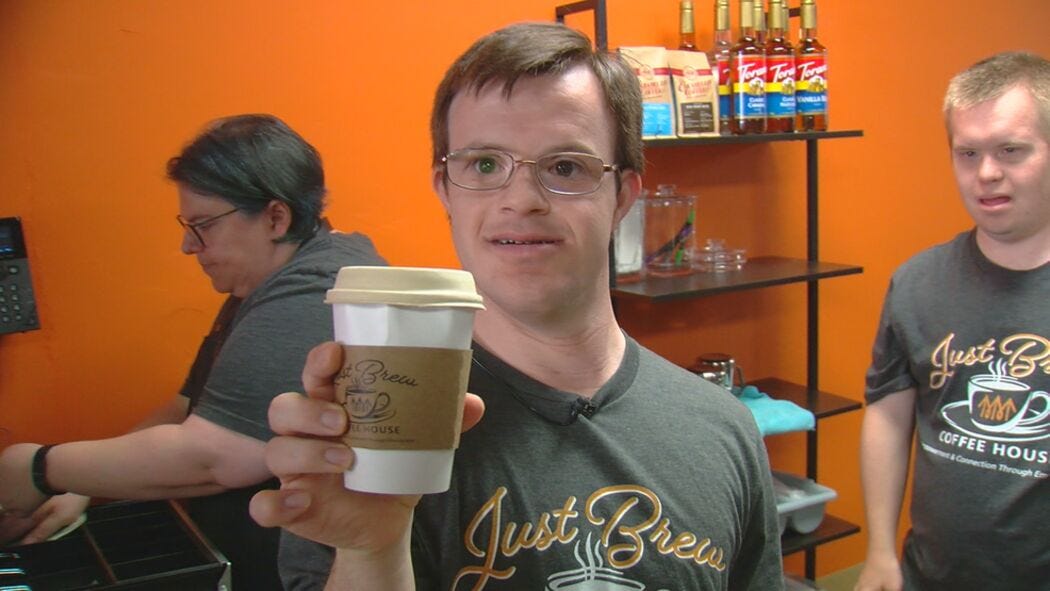Work, Wonder & More

First of all, welcome to all you new subscribers! And to those of you who’ve been here for awhile, thanks for regularly reading and commenting. I love hearing from folks and receiving your feedback and input on topics of interest for future volumes. Also appreciate your sharing Another Normal with others who may be interested in the information and resources provided.
As many of know, October is Disability Employment Awareness Month. This year’s theme, “America’s Recovery: Powered by Inclusion,” spotlights the special concerns and opportunities of preparing for, identifying and maintaining employment as we deal with the COVID-19 pandemic. Here’s information on initiatives by the federal government to support inclusive employment, including SSI’s Ticket to Work program and customized employment. HSS does a great job explaining the many benefits that people with disabilities experience by being employed and contributing to a team:
Despite all the rhetoric, though, job opportunities for young people with disabilities at the local level are still feel few and far between, especially for those with intellectual and developmental disabilities (I/DD). If you are working with a young adult with disabilities to secure a job, won’t you please share your experience and recommendations with others by commenting below?
According to the US Department of Labor, the unemployment rate for young adults with disabilities is nearly double that of their non-disabled peers. We can all work to help close that gap. This week’s newsletter spotlights a few examples and a few other things to think about along the way.
Perpetual optimism is a force multiplier.
—Colin Powell, R.I.P.
Sew and tell.
New Jersey-based nonprofit Inspired Threads has launched an innovative new inclusive employment model that’s good for the environment and young people with disabilities. The organization works with local fashion designers to produce one-of-a-kind blankets and bags using re-purposed apparel, fabric scraps, and other materials. Importantly, they partner with school districts, voc rehab, and individual families to develop person-centered plans that teach sewing, customer service and other job skills and fuel a person’s passion to work. Maybe it’s time to turn your old t-shirts, uniforms, dance leotards and other memories into a special gift for a special someone (ho! ho! ho!). Reach out here to shop or see if you can recreate this business model in your area.

If you build it, they will come.
So proud of my hometown of Cincinnati, which continues to create amazing opportunities for young people with disabilities, including the new Just Brew Coffee House. This initiative with the Ken Anderson Alliance, a nonprofit started by former Cincinnati Bengals QB and the proud uncle of a young man with autism, provides jobs and training to people with disabilities, along with social events and community-building for “after hours” fun. Their tagline, Empowerment and Connection Through Employment, says it all.

Ask and you shall receive.
In her book, Change Your Questions Change Your Life, Marilee Adams presents a tool called the Choice Map, which can be useful to everyone at both work and home. It’s designed to help us learn more and judge less. Asking “judger” questions can make us feel stuck, bad or unable to see a way forward. Staying curious and asking “learner” questions enables us to see new perspectives and opportunities for ourselves and for our loved ones. This is something I work on with coaching clients and something we all can do on our own. Can this tool be helpful to your family, school or workplace? Don’t these questions apply to all of us?
-
What do I want?
-
What are my choices?
-
What assumptions am I making?
-
What am I responsible for?
-
How else can I think about this?
-
What is the other person thinking, feeling, needing, and wanting?

All in a day’s work.
Are you, like me, having trouble finding caregivers to assist your loved ones at home and on the job? Individuals with disabilities and organizations that serve them have been severely impacted by the current U.S. labor shortage. There just aren’t enough qualified caregivers and job coaches to go around these days. Things don’t appear to be changing anytime soon, unfortunately. In some places, workers are choosing to strike in protest against low wages, causing additional stress to the already exhausting lives of those in need. What’s happening where you live and how can we help create positive change?

Interested in learning more about working with Kris?
Contact us for information on what this might look like for you, including outcomes, availability, fees and more.
Stay connected with news and updates!
Sign up below to receive our newsletter and updates.
We hate SPAM. We will never sell your information, for any reason.


